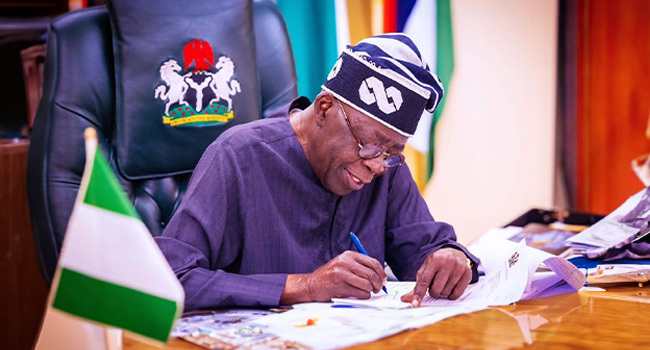Bayo Onanuga, the Special Adviser to President Bola Tinubu on Information and Strategy, on Sunday, outlined additional steps planned for next year to address temporary economic hurdles linked to recent reform initiatives.
Onanuga disclosed this in a statement on Saturday in Abuja.
Noting that more of such measures would be taken in 2024, he said Tinubu had never shied away from acknowledging the temporary pains triggered by the reforms, stressing that proactive measures would continue to be taken.
“Many of these measures are already being taken, and in the New Year, we expect the silver linings, which are at present understated, to blossom into rays of sunshine to be experienced by all Nigerians.
“The removal of fuel subsidy and the move to merge foreign exchange rates, two headline reforms introduced by the Tinubu administration since late May.
“It’s caused by problems such as high fuel prices and the depreciation of the naira, two monstrosities that combined to cause a general spike in costs of services and goods,” Onanuga said.
Making reference to the latest report by the National Bureau of Statistics (NBS) that put Nigeria’s inflation at 26.7 per cent in September, Onanuga said food inflation remained untamed.
According to him, the new policies are not solely responsible for the economic problems the country is currently facing.
“We were destined for the tough and rough patch where we are today because of the prevailing conditions before Tinubu took over on May 29.
“As of June 2023, the budget deficit was N10.8 trillion. Actual debt service was 98.95 per cent of revenue, far higher than the projected 59.37 per cent. Inflow into the country’s foreign reserve came in trickles.
“And so bad was the state of affairs that Nigeria could not remit about $800 million to foreign airlines. JP Morgan exposed our near insolvency by claiming in a report that our net foreign reserve was just about $3.7 billion, not the $33 billion-plus flaunted by Emefiele’s CBN,” he stated.

